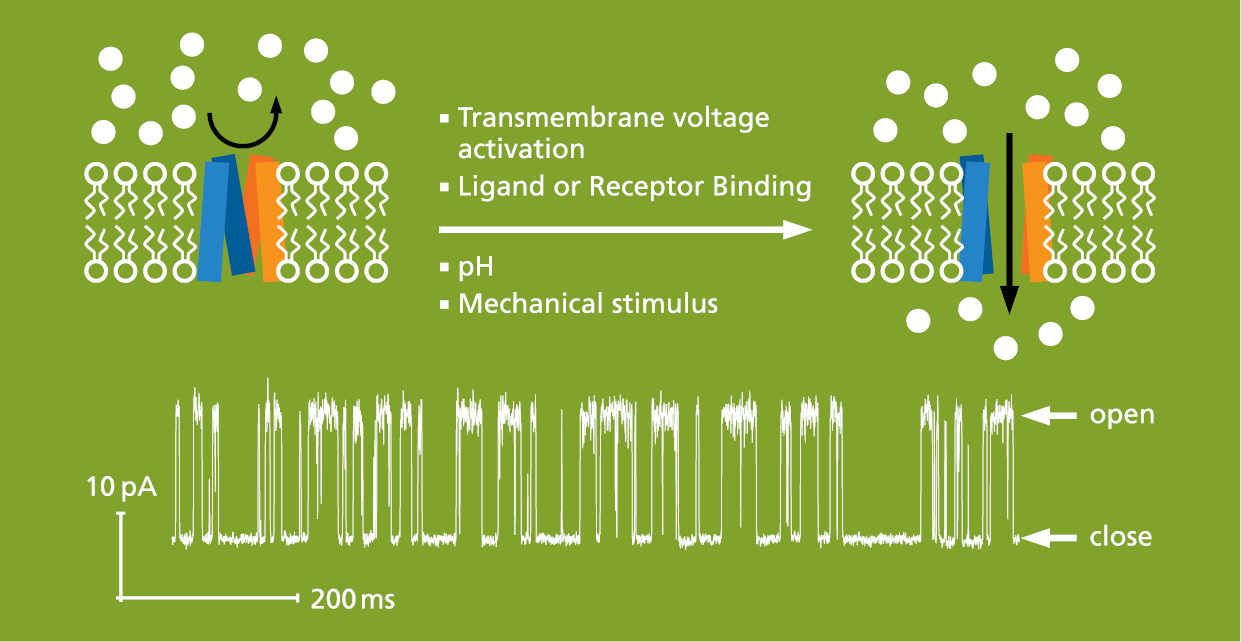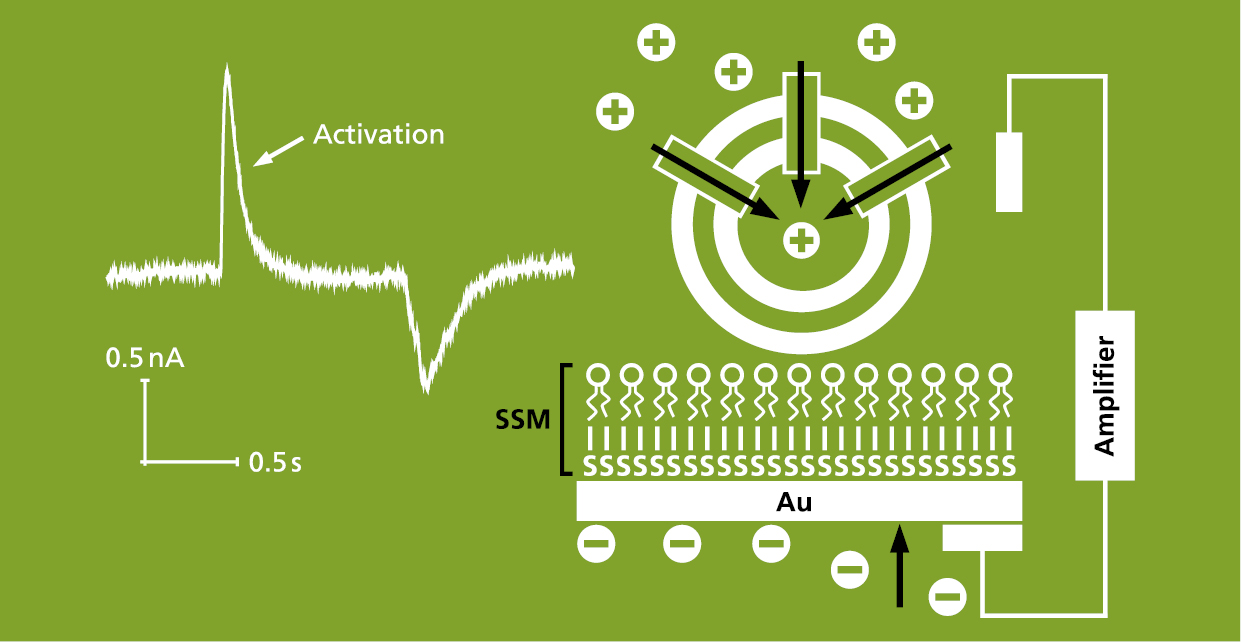Membrane proteins are functionally and structurally diverse, making them a major group of substances that are required in ever-increasing quality and quantity. However, membrane proteins are also a class of proteins that are particularly difficult to produce in living cells. Toxic effects, protein misfolding and the formation of insoluble protein aggregates often make cell-based membrane protein synthesis impossible. For the first time, cell-free systems offer the possibility of expressing membrane proteins through time-saving, highly efficient synthesis methods in order to immediately integrate these into chip-based functional analysis. The development of a fast PCR-based method for creating matrices for the cloning-free membrane protein synthesis in prokaryotic and eukaryotic cell-free systems, as well as the development of specific vectors for efficient cell-free protein synthesis in insect cell lysates and CHO-based systems provide the basis for synthesizing complex membrane proteins. Eukaryotic protein synthesis systems allow multimeric and post-translationally modified membrane proteins to be synthesized. Modifications, such as glycosylation and signal peptide cleavage, as well as lipid modification and disulfide bridges result in an increased soluble and functional protein yield. In addition to this, newly synthesized membrane proteins can be integrated in cell-free eukaryotic systems in vesicles, making these membrane proteins available for subsequent analysis.
Membrane Protein Synthesis
Membrane Protein Analysis


The development of systems for the analysis of membrane proteins is of fundamental importance for the identification of pharmaceutically active substances. A particular focus is on the pharmacological characterization, modification and functional investigation of cell-free produced membrane proteins. In particular, ion channels, transport proteins and G protein-coupled receptors are the focus of research. By introducing fluorescent groups at selected positions, multimeric membrane proteins can be submitted to analysis. The incorporation of modified non-canonical amino acids during protein synthesis is performed using chemically or enzymatically preacylated tRNAs. Defined protein conjugates with biotinylated or fluorescently labeled groups are prepared in both prokaryotic and eukaryotic cell-free systems. Site-specific protein labeling serves as a gentle method for functional analysis of the synthesized membrane proteins. Ligand-gated and voltage-gated ion channels are characterized electrophysiologically and analyzed with respect to the identification of new pharmaceuticals.
Range of services
- Pharmacological characterization and modification of membrane proteins: in particular, studies of ion channels, transport proteins, and G-protein-coupled receptors.
- Analysis of multimeric membrane proteins
- Site-specific protein labeling for functional analysis
 Fraunhofer Institute for Cell Therapy and Immunology, Branch Bioanalytics and Bioprocesses IZI-BB
Fraunhofer Institute for Cell Therapy and Immunology, Branch Bioanalytics and Bioprocesses IZI-BB